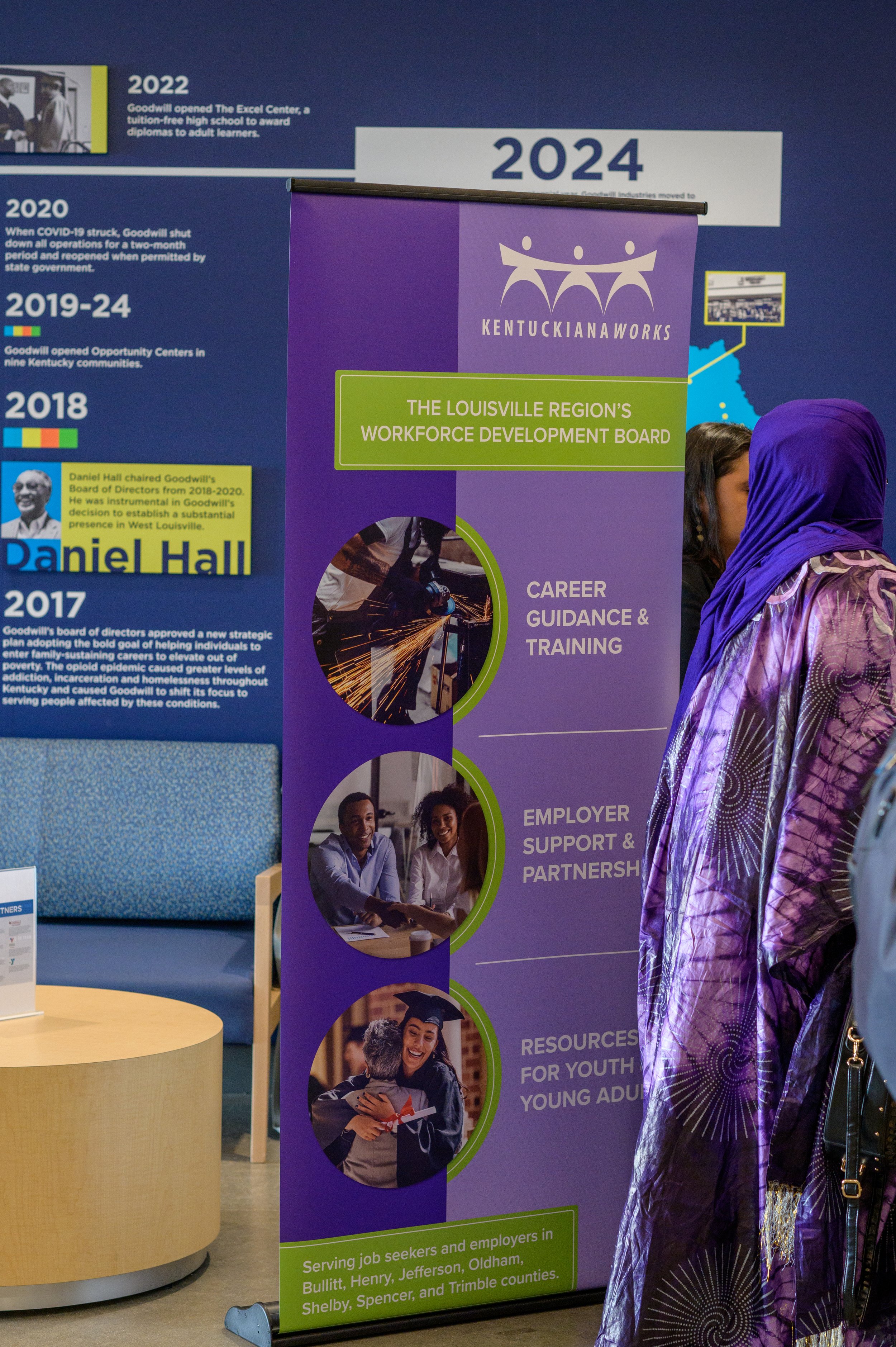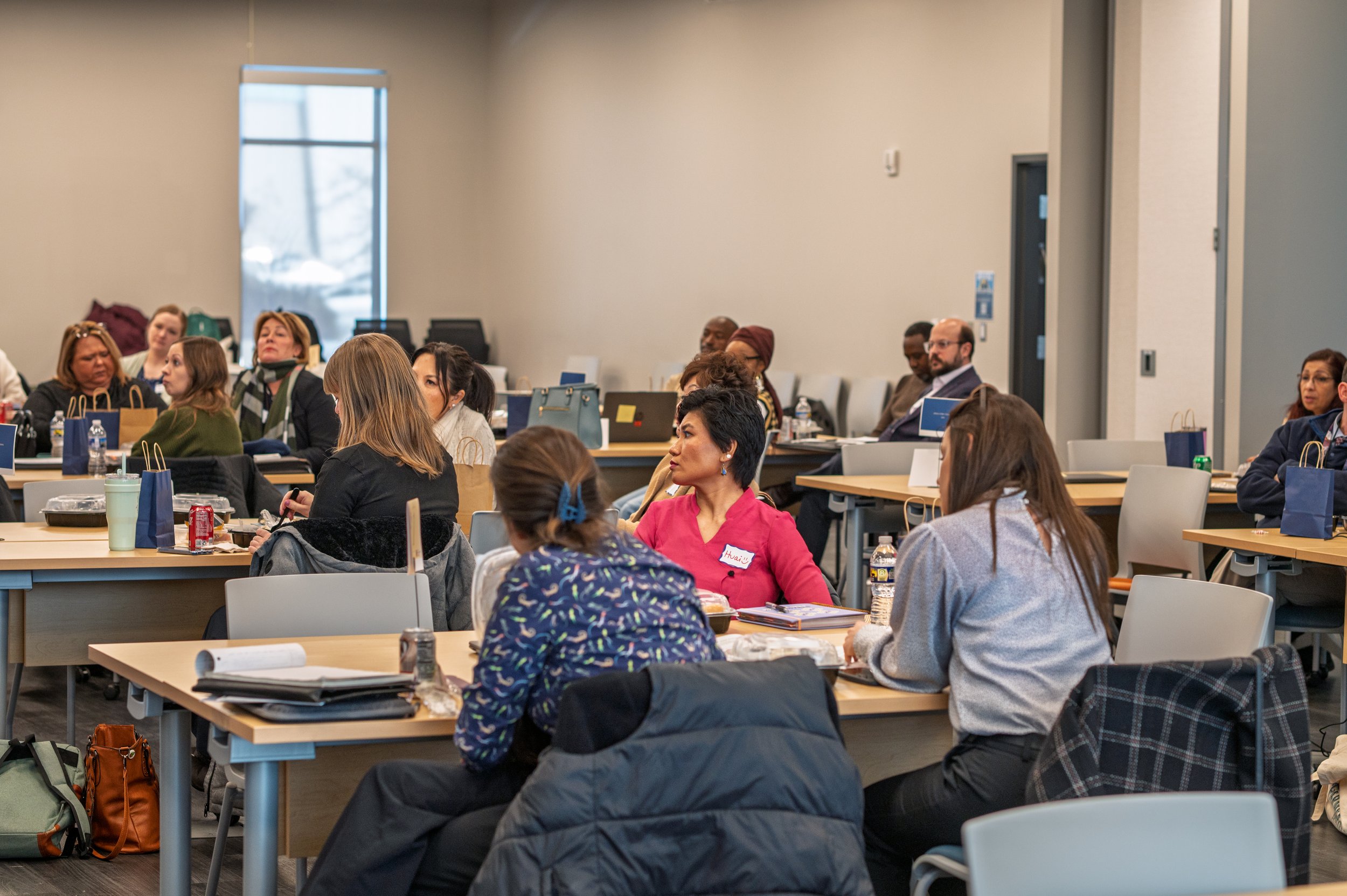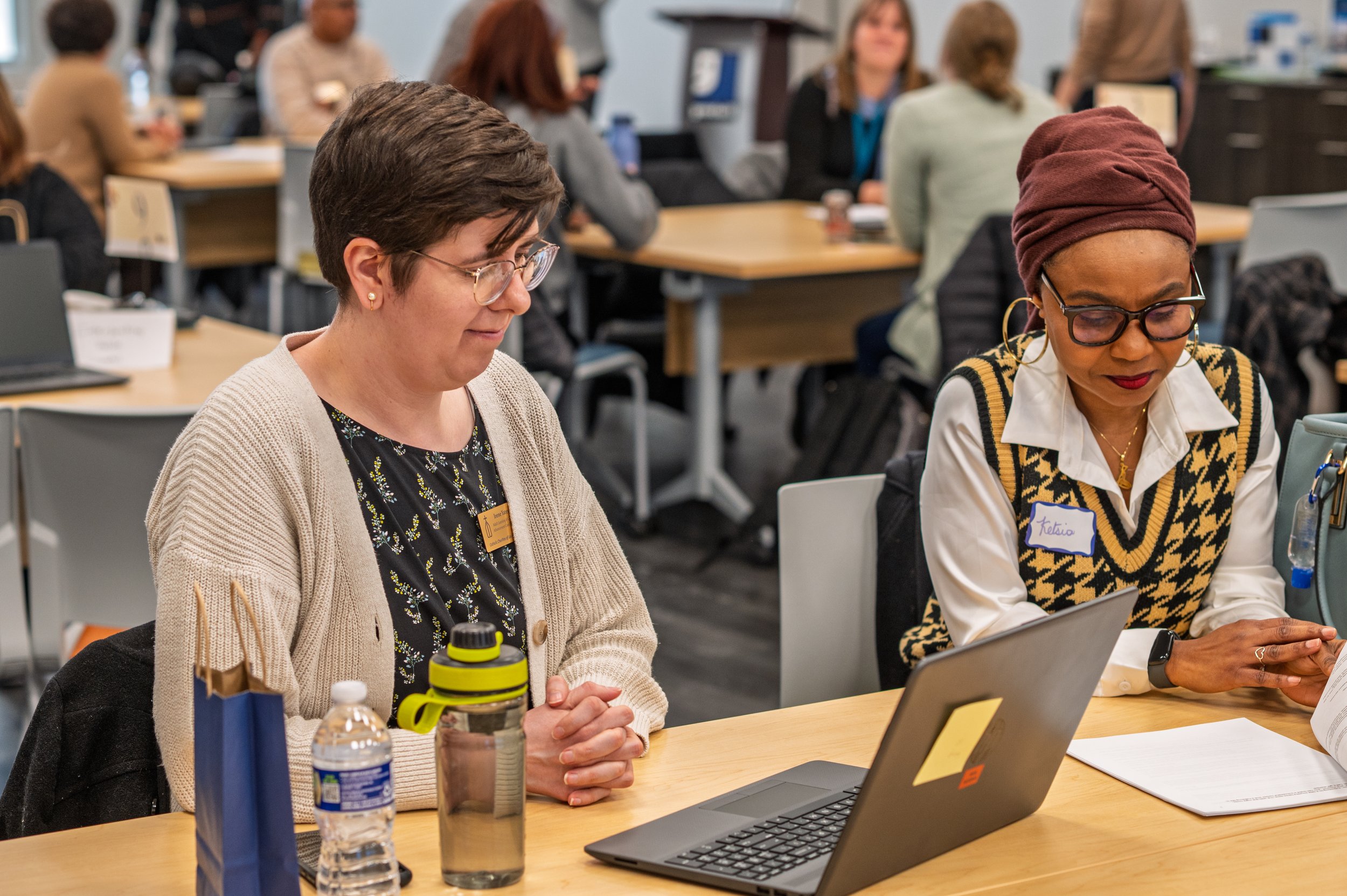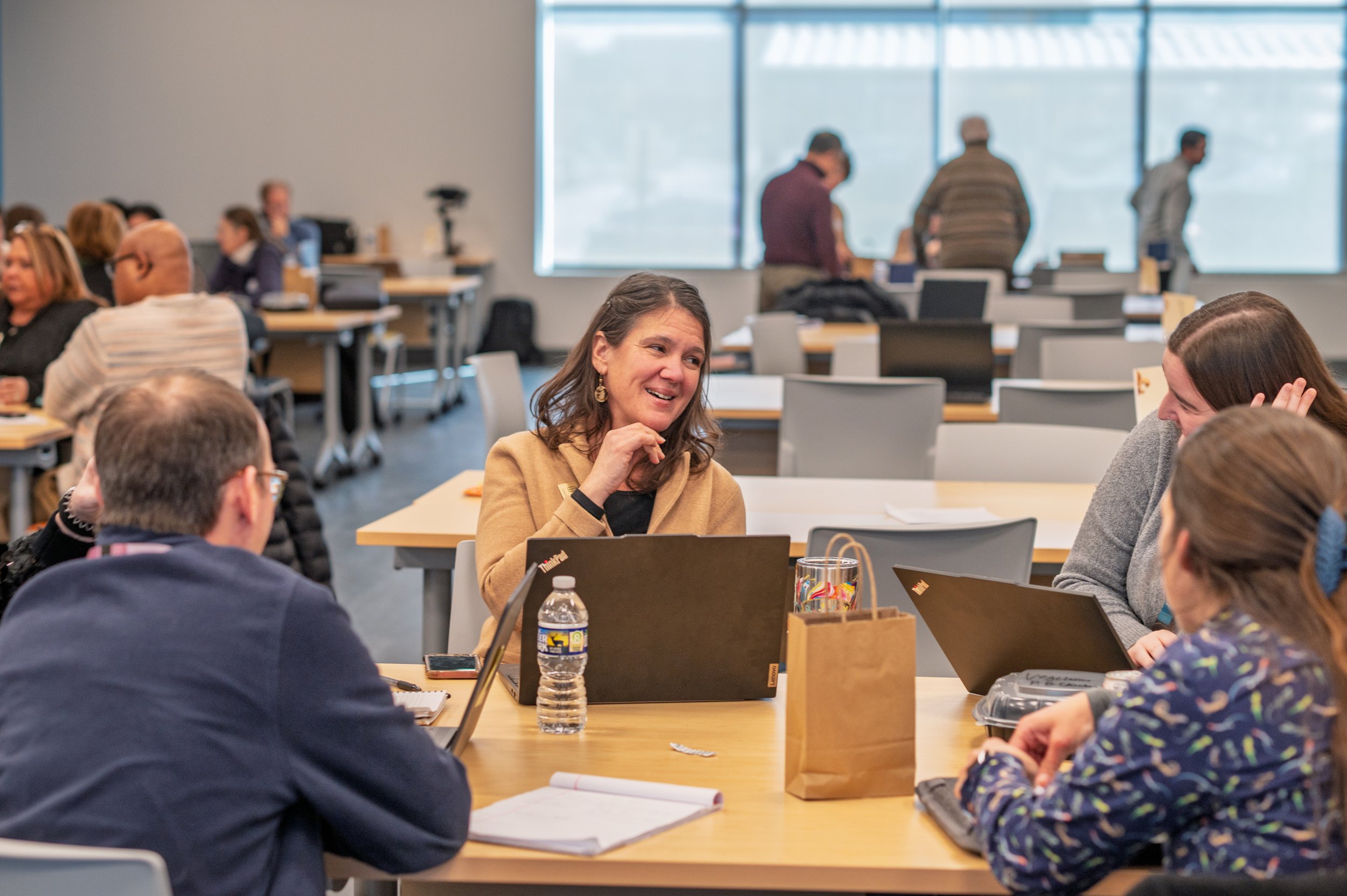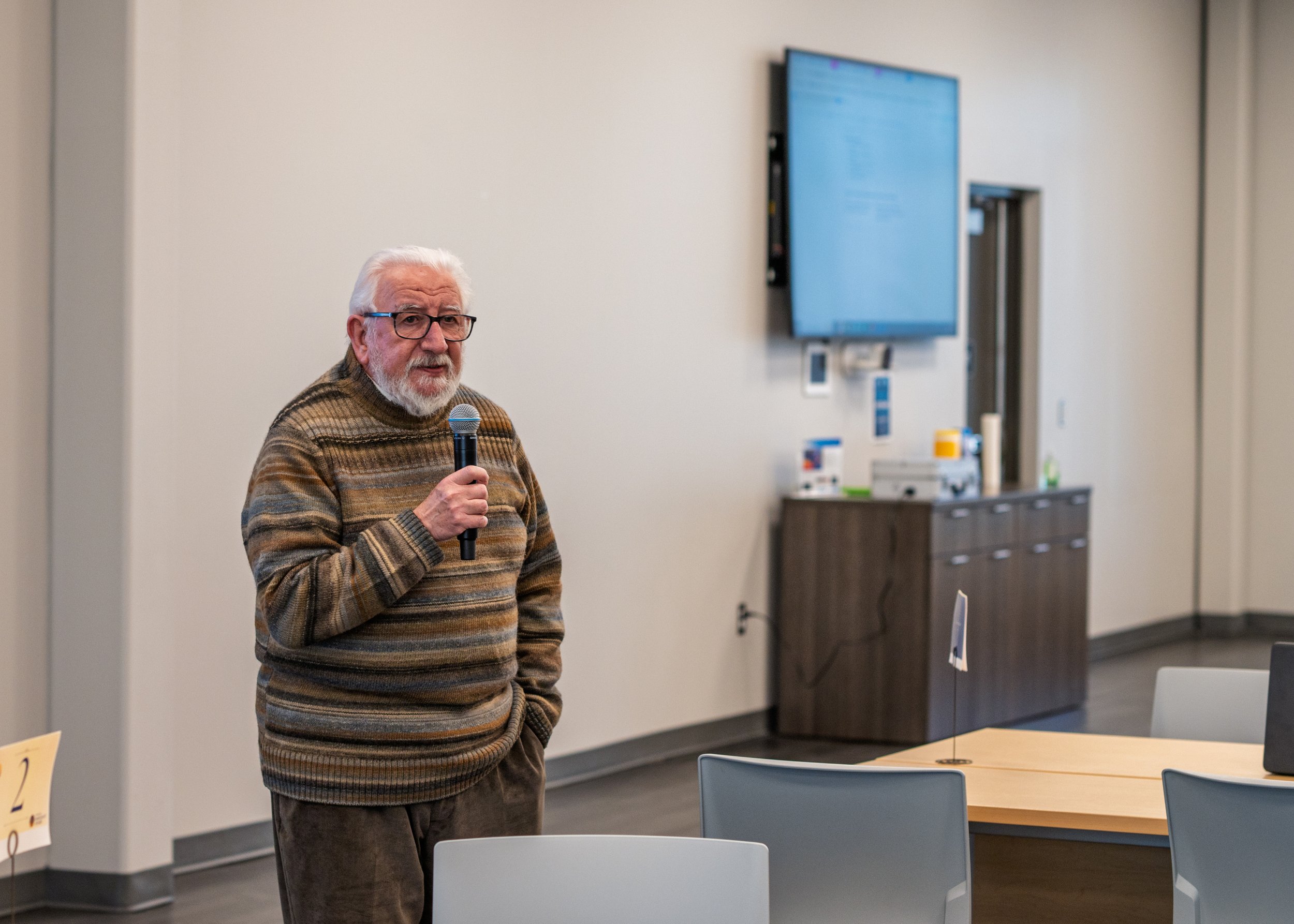Community Conversations Support Refugee Employment
Over the last several months, KentuckianaWorks held a series of Refugee Employment Roundtables that aimed to shed light on what works when it comes to employing refugee workers and what stands out as persistent challenges to their employment success.
Roundtable participants divide into small groups to discuss challenges and opportunities related to refugee employment during the November 2024 session. Photo credit: Greater Art Solutions
These three sessions welcomed an average of more than sixty participants, including employer representatives, refugee workers, and individuals supporting the refugee community. Conducted in partnership with Louisville Metro Government’s Office of Immigrant Affairs (OIA) with funding from the Gates Foundation via the Urban Institute’s Mobility Alliance project, this series aligns with KentuckianaWorks’ efforts to connect more job seekers to quality jobs.
The first session was part of the Office of Immigrant Affairs’ November 2024 Global Louisville convening and focused on understanding the landscape of refugee employment, identifying challenges, and exploring opportunities for improved workforce integration. Nearly eighty refugee workers, employer representatives, and support agency staff participated in discussions that revealed misconceptions about hiring refugees and the desire for relevant resources for managers and recently resettled employees.
Between meetings, OIA and KentuckianaWorks designed a second session shaped by the goals identified in the November meeting. Key concepts that drove the direction of the rest of the roundtable series included workplace readiness, career advancement pathways, language and transportation barriers, resources for fostering inclusive and supportive workplaces, and leveraging technology and data to develop tools for continuous improvement.
The roundtable reconvened in January 2025 to collectively prioritize projects and develop detailed action plans for implementation. After learning about real-world hurdles refugees faced in occupational re-credentialing, the hiring process, and workplace integration, the attendees ranked potential initiatives based on impact, feasibility, and urgency. This exercise led to the selection of five key projects for further consideration: a how-to guide for refugee workers, a best practices manual for employers, an ecosystem asset map, an advocacy agenda for policy change, and a joint training curriculum for employers and refugee employees.
Facilitator David Lopez leads participants through a project prioritization exercise during the January roundtable event. Photo credit: Greater Art Soulutions
Mixed-stakeholder groups each chose one of the projects for which they detailed content, audience, resources needed, and dissemination strategies. The table working on the how-to guide for refugee workers found their way to practical steps for development and dissemination, so the planning committee decided that the guide and similar products would be the most impactful for refugee workers and local employers.
In preparation for the third roundtable event, the planning committee created a draft of a how-to guide to assist refugee job seekers. The guide is a quick-reference for the earlier stages of career navigation following resettlement. It allows readers to easily find advice on understanding the employment system in the United States, credentialing, workplace culture, and more.
Attendees provided valuable feedback on the employment navigation guide during the February roundtable event. Photo credit: Greater Art Solutions
During the final session in February 2025, the stakeholders refined the how-to guide. Participants worked in small groups to review sections, ensuring clarity, completeness, and accessibility. The attendees also used the time together to plan for continued progress on resources for refugee employment after the end of this series. Breakout discussions focused on additional projects like an ecosystem asset map, an advocacy agenda, and training programs. In addition to publishing the how-to guide for workers, KentuckianaWorks committed to authoring a best practices manual for employers with advice on topics such as hiring and language support.
Thank you to the many employer representatives, refugee workers, and staff from refugee-serving agencies that contributed to a rich and productive community conversation. The Refugee Employment Roundtable series successfully engaged stakeholders in meaningful discussions, resulting in concrete deliverables to improve employment outcomes for refugees. The work done in these sessions lays a strong foundation for continued refugee workforce integration efforts in Louisville and can serve as a model for other communities aiming to improve refugee employment outcomes.
In the second quarter of 2025, KentuckianaWorks will publish a how-to guide for refugee job seekers as well as a best practices manual for employers interested in hiring refugees. Both resources will be available online and in print.
You can find photos (credit: Greater Art Solutions) from all three events in the gallery below.

















